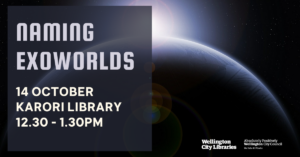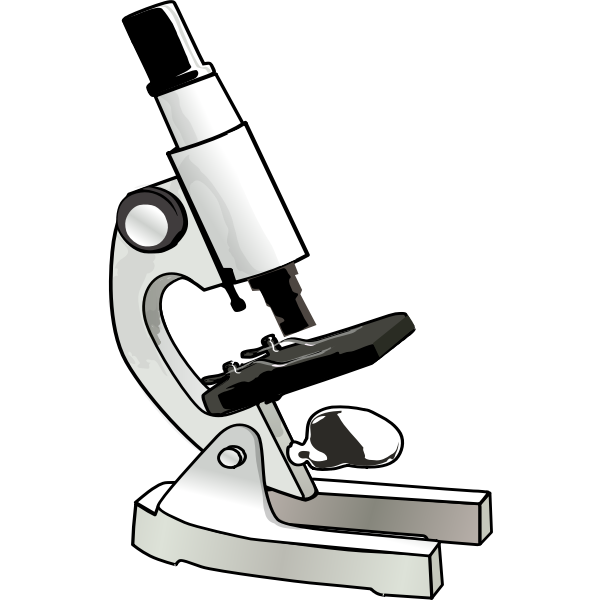Have you ever wanted to have the chance for your thoughts and ideas to be permanently written in the stars? As part of our fabulous series of space-themed events for the October school holidays, we’re excited to announce a collaboration with Victoria University of Wellington which will see you exploring distant space as well as taking the opportunity to make your mark in the field of stellar cartography.
Find out more about these fabulous events below!
 On a Planet Far, Far Away: Discovering Exoworlds
On a Planet Far, Far Away: Discovering Exoworlds
When? Friday 14 October, 11.30am – 12.15pm
Where? Karori Library, Ground Floor
In this interactive talk and demonstration, Victoria University of Wellington astrophysicists Dr. Tulasi Parashar and Dr. Yvette Perrott will be pulling back the curtain on the various tools and techniques space scientists use to map distant space, including the discovery of exoworlds — planets and stars that lie beyond our solar system. After the session, you will have the opportunity to chat to Tulasi and Yvette to learn more about their cutting-edge research in outer space.
This talk is open for space enthusiasts of all ages, and there’s no need to register! Find out more on our event calendar.
 Making Your Mark: Naming Exoworlds
Making Your Mark: Naming Exoworlds
When? Friday 14 October, 12.30 – 1.30pm
Where? Karori Library, 1st Floor
Following the above talk, Tulasi and Yvette will be leading a once-in-a-lifetime opportunity for rangatahi aged 10-15. In this workshop, you will be learning even more about the fascinating science behind the detection of exoworlds, how different cultures assign names to celestial bodies, and then work together to propose an official name for one of twenty recently-discovered exoworlds currently being targeted by the James Webb Space Telescope.
As part of the International Astronomical Union’s NameExoWorlds initiative, the successful name will actually be put forward to the original discoverers of the planet we choose for official inclusion in the stellar charts used by the scientific community worldwide — meaning your thoughts and ideas may well become a permanent feature of the night sky as we understand it.
Because space is limited for this event, registration is essential. Visit our event calendar to register your interest in this event.
Meet the Space Scientists
We are enormously grateful to our friends at Victoria University of Wellington’s School of Physical and Chemical Sciences for providing these opportunities to meet some of the foremost experts in their fields.
 Dr. Tulasi Parashar is a space physicist. His interests range from things a few hundred kilometres above Earth to things in the farthest recesses of the universe. He loves chatting with people, grown-up as well as young ones, about all things space. Learn more about Dr. Parashar.
Dr. Tulasi Parashar is a space physicist. His interests range from things a few hundred kilometres above Earth to things in the farthest recesses of the universe. He loves chatting with people, grown-up as well as young ones, about all things space. Learn more about Dr. Parashar. Dr. Yvette Perrott is an astrophysicist and lecturer at Victoria University of Wellington. She started off researching exoplanets but now likes to study the biggest things in our Universe using light that we can’t see with our eyes. Learn more about Dr. Perrott.
Dr. Yvette Perrott is an astrophysicist and lecturer at Victoria University of Wellington. She started off researching exoplanets but now likes to study the biggest things in our Universe using light that we can’t see with our eyes. Learn more about Dr. Perrott.
Keen to learn more about space? Your local library has heaps of books and other resources — check out this blog post to get started!
 A germ is a common term for a tiny organism (so tiny that you can only see it through a
A germ is a common term for a tiny organism (so tiny that you can only see it through a 